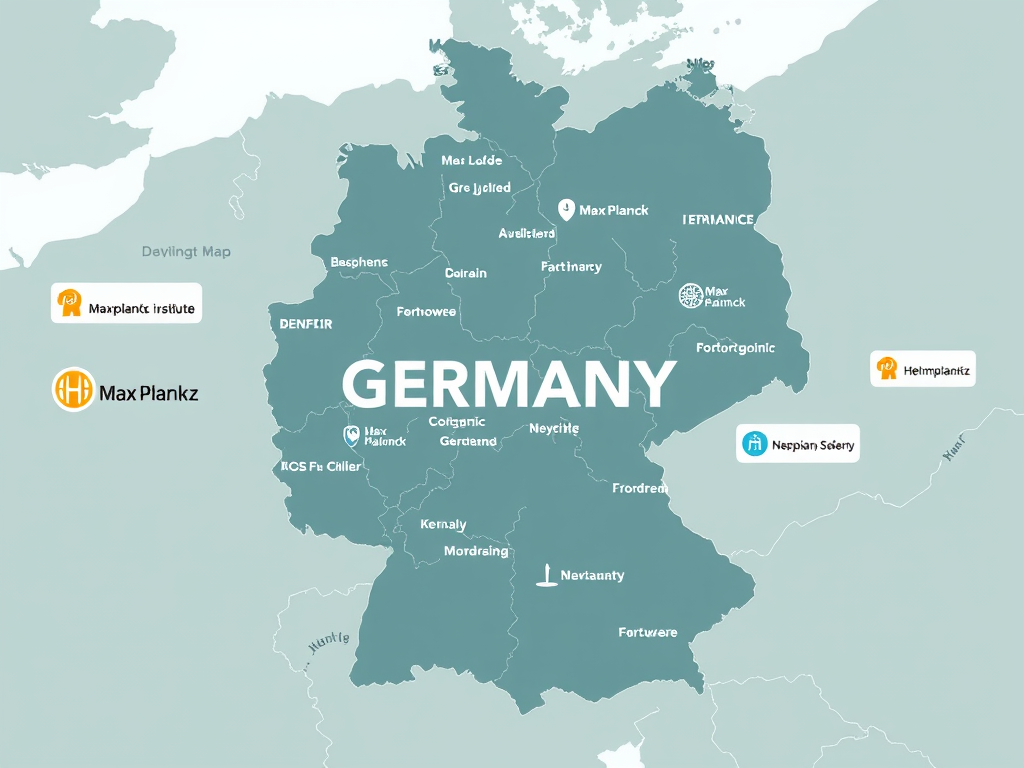
🇩🇪 Why Choose Germany for Research?
Germany is a global leader in scientific research and innovation. With world-renowned institutes like Max Planck, Fraunhofer, Helmholtz, and Leibniz, plus well-funded universities and private R&D, it offers incredible opportunities for scientists and researchers.
Whether you’re a PhD aspirant or an experienced academic, Germany welcomes international researchers with open arms, robust funding, and top-tier infrastructure.

👩🔬 Types of Positions Available
| Position | Description | Language | Salary (approx. net/month) |
|---|---|---|---|
| PhD Researcher | Project-based, often with teaching duties | English | €1,600–2,300 |
| Postdoc | Independent or collaborative research | English | €3,000–3,500 |
| Junior Professor | Tenure-track academic lead | German often required | €4,000–4,800 |
| Scientific Staff | Teaching + research | German preferred | €2,500–3,500 |
| R&D Researcher (Industry) | Applied research in tech or pharma | English/German | Vari |
📝 Application Documents Checklist
- Academic CV (Lebenslauf)
- Reverse chronological
- Optional photo
- Cover Letter
- Tailored to the project/lab
- 1 page max
- Statement of Purpose / Research Proposal
- Especially for postdocs or group leads
- Transcripts and Diplomas
- Certified translations if needed
- Letters of Recommendation
- From professors or former supervisors
- List of Publications (if any)
🛂 Visa Options for Non-EU Researchers
1. Research Visa (§18d Residence Act)
- Requires a hosting agreement
- Valid for the duration of the project
2. EU Blue Card
- For researchers earning €45,300+ (2024 threshold)
- Path to permanent residency
Required Documents:
- Hosting agreement or job contract
- Valid passport
- Proof of qualifications
- Health insurance
- Proof of funds or salary

🗣️ Do You Need German?
- PhD/Postdoc: English often sufficient
- University Lectureships: B2–C1 German preferred
- Industry: Depends on employer; English common in multinationals
Consider learning German with:
- Goethe-Institut
- DW Learn German
- Deutsche Universität Online (DUO)
💰 Salary and Funding Overview
Most public research salaries follow the TV-L or TVöD pay scale.
| Role | Pay Grade | Net Monthly Salary (Approx.) |
|---|---|---|
| PhD Student | TV-L E13 (50–65%) | €1,600–2,300 |
| Postdoc | TV-L E13 (100%) | €3,000–3,500 |
| Junior Prof | W1 | €4,000–4,800 |
| Prof / Group Leader | W2–W3 | €5,000+ |
Funding Sources:
- DAAD
- DFG (German Research Foundation)
- Humboldt Foundation
- Marie Curie Fellowships (EU)
🧳 Living and Working in Germany
- Cost of Living: Lower than UK/US; higher in cities like Munich
- Health Insurance: Mandatory (usually public/statutory)
- Work Culture: Punctual, structured, and balanced
- Housing: Start early, check WG-Gesucht
✅ Final Tips for Success
- Start early: Positions fill quickly
- Be proactive: Email labs or professors directly
- Polish your documents: Clarity and professionalism matter
- Use LinkedIn and ResearchGate to connect with German researchers
- Stay updated on deadlines and funding calls



